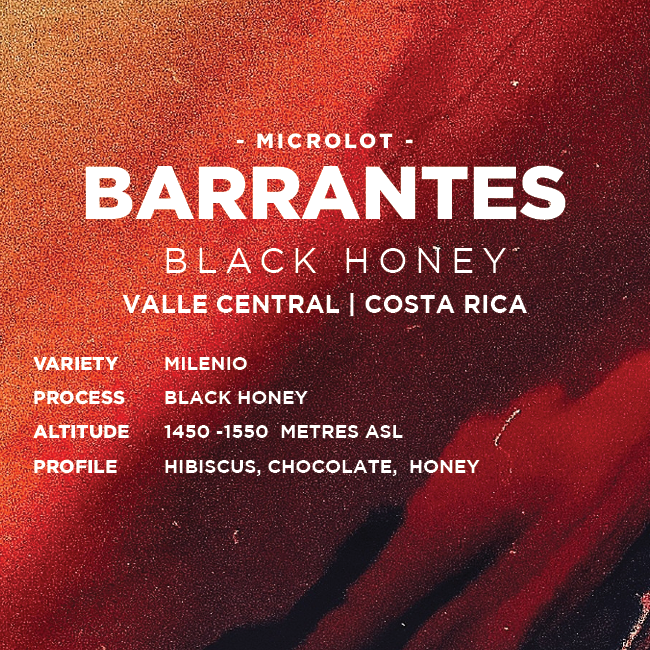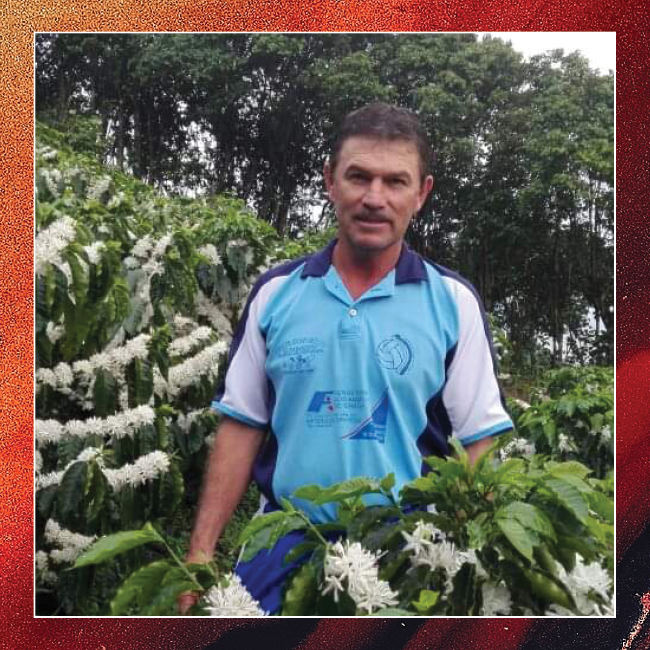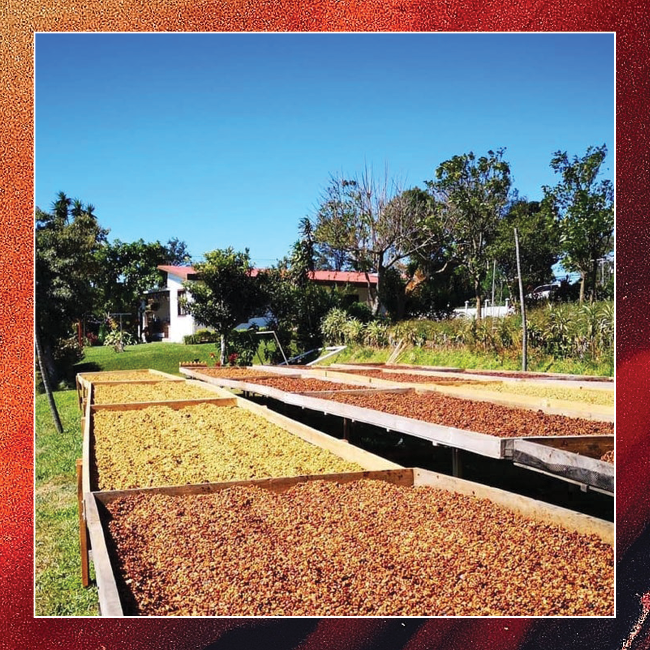Denna webbplats är skyddad av reCAPTCHA och Googles integritetspolicy . Användarvillkor gäller.
I koppen: Välbalanserad, runda söta toner som påminner om honung och kola med inslag av hibiscus, plommon och choklad.
Koppning: 87 poäng
Munkänsla: Sammetslen
Botanisk variant: Milenio
Process: Honungsprocess (Black Honey)
Producent: Marvin Barrantes / Finca Reina Elizabeth
Växthöjd: 1450 - 1550 möh
Region: Valle Central
Background:
Owner Marvin Barrantes named his farm after his mother, Elisa Alfaro Hidalgo. Doña Elisa was well known in the town for her beautiful blue eyes. The locals of San Luis de Grecia said that only a queen could have such eyes and nicknamed her, “Reina Elizabeth.” Marvin also recalls that, in addition to her beautiful blue eyes, Doña Elisa’s kindness also rivaled that of a queen.
Marvin’s farm is 8 hectares. To enable his production of single-variety lots, Marvin has divided his land to cultivate varieties separately. In addition to the Milenio variety in this lot, Marvin also cultivates Caturra, Sarchimor, Geisha and Villalobos.
Marvin established his milling operation in 2012 with only a small pulper and some raised beds. While honey processing is expensive, Marvin explained that the short distance from his fields to his mill, and his ability to capture the value from the processing stage, makes it possible for him to produce this excellent coffee.
Cherry is selectively handpicked by Marvin and his family and pulped on Marvin’s ecopulpers. They then lay parchment and mucilage on drying beds. They rake coffee parchment frequently to ensure even drying. Coffee sundries for approximately 20 days.
Once dry, Marvin brings his parchment to Hacienda Sonora, where coffee is stored, dry milled and prepared for export.
Costa Rica has also become a world leader in traceability and sustainability in coffee production. Ninety percent of the country’s 50,000 coffee farmers are smallholders, and today, many deliver their cherry to boutique micro-mills that often process cherries according to producer specs to retain single-lot or single-farm qualities.
The rise of micro-mill processing, in itself, is a relatively recent development. Prior to the early 2000s it was common for smaller producers to deliver their cherry to cooperative-owned mills. As lucrative specialty markets developed, more and more farmers began establishing mills on their own farms, giving them increased control over processing and more assurance of the ‘traceability story’ so important to the growing market segment. Mills with excess capacity would then offer their services to neighboring farmers, offering a range of processing methods for small lots along with full traceability for roasters and importers. The system has enabled Costa Rica’s small to mid-sized coffee farmers to offer a wide range of differentiated products. Today, specialty lots from Costa Rica are almost as likely to bear the name of the micro-mill where they were processed as that of the producing farm.
The typically uncertain and dry weather patterns in Costa Rica make coffee farming more difficult. Long dry seasons and unpredictable weather patterns have virtually eliminated the possibility of organic farming. Nonetheless, both the government and farmers have taken active steps to protect the environment. Some of these restrictions also inform the processing methods for which Costa Rican coffee has become known.




